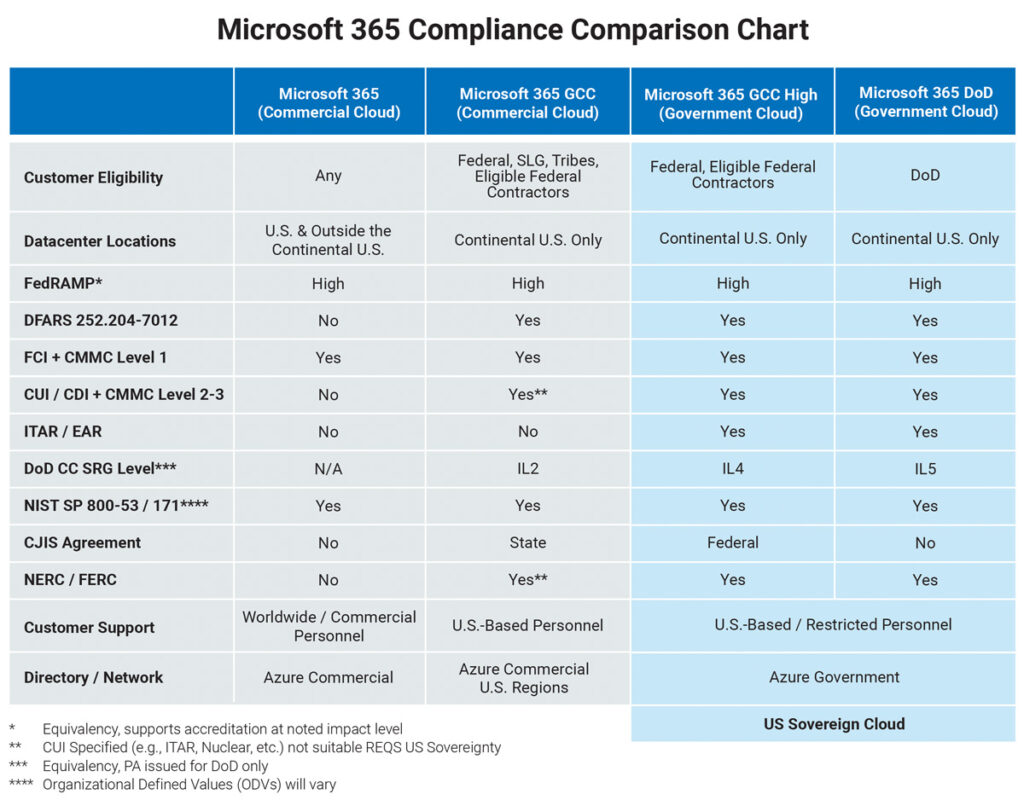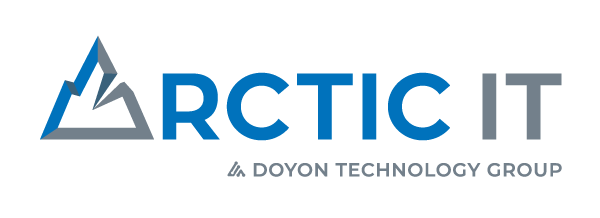Our modern workforce is increasingly digital, and many government organizations face the pressure of balancing the need for citizen engagement, data security, and access. This presents many challenges to governments and tribal nations needing to support engagement while guaranteeing data security. As more and more departments handle sensitive data, it gets complicated to manage multiple databases while protecting privacy.
How can agencies promote collaboration between departments, provide services, and ensure security while keeping data accessible? And how can governments encourage automation to make up for a diminished workforce?
Government and tribal organizations must work within a strict set of compliance guidelines, which can add another layer of difficulty to providing digital services and protecting data. Azure Government cloud-based services, including Microsoft 365 Government Community Cloud (GCC) and GCC High, help governments and tribes meet these challenges.
Let’s explore the critical aspects of Microsoft’s GCC, GCC High, and the Commercial Cloud. For more information or guidance on what cloud services can meet your needs, contact the team at Arctic IT.

Microsoft Commercial Cloud
Companies often house data on their internal servers but look to commercial cloud services to secure and store data as well. The Microsoft Commercial Cloud was designed for just that – to meet the data storage requirements for all types of organizations.
The Commercial Cloud can help integrate and protect data across platforms and includes tools to enhance a business’s ability to keep up with a changing, increasingly digital world. This suite of business productivity and security applications includes:
- Microsoft Azure
- Microsoft 365/Office 365
- Dynamics 365
- Power Platform
- Developer tools
Commercial cloud services can help organizations and tribal governments perform more efficiently and innovate more quickly, allowing it to meet new challenges and demands. Here are some advantages to housing your data in the Commercial Cloud:
- Scalability: Cloud computing offers virtually unlimited scalability, which can be particularly valuable for organizations that have fluctuating staff counts. This means that the organization can easily scale their cloud infrastructure up or down to accommodate changes without having to worry about physical hardware limitations.
- Cost savings: Leveraging the commercial cloud can be more cost-effective than maintaining on-premises infrastructure. With the cloud, organizations can avoid the upfront costs of purchasing and maintaining hardware, as well as the ongoing expenses associated with powering, cooling, and upgrading that hardware. Instead, they can pay for cloud services on a subscription basis, which can be more predictable and easier to budget for.
- Accessibility: Cloud computing allows employees to access their information and resources from anywhere with an internet connection. This can be especially important for staff who may be living in remote areas without easy access to physical infrastructure.
- Security: Microsoft has robust security measures in place to protect customer data, which can provide a higher level of security than what an organization might be able to achieve on their own. Additionally, many cloud providers offer compliance certifications that can help organizations meet regulatory requirements.
- Collaboration: The cloud can facilitate collaboration among staff and external partners. Employees can share information and resources more easily and collaborate with other organizations to better serve their customers or members.
Microsoft 365 Government Community Cloud
Microsoft 365 GCC is a cloud platform designed specifically for U.S. government customers, tribal government customers, and their partners, providing a dedicated and isolated environment for data that may be subject to certain regulations or compliance requirements. The GCC offers many of the same features and operations as commercial cloud services, including Microsoft 365, Azure, and Dynamics 365. The primary differences between the commercial cloud and the Microsoft GCC boil down to compliance, where the datacenters are located, and who can provide support. Microsoft 365 GCC provides compliance with the following:
- FedRAMP High
- Defense Federal Acquisition Regulations Supplement (DFARS)
- DISA Cloud Computing Security Requirements Guide (CC SRG) Impact Level 1-2
- NIST 800-53/171
- CMMC Level 1
- State CJIS cloud compliance regulations (in 45 states, which accounts for over ⅔ of the population)
The GCC is a good option for organizations and tribal governments that need to comply with specific regulations, work with government agencies or contractors, handle sensitive data, or want to mitigate cybersecurity risk. This cloud complies with data storage and availability regulations while providing tools that improve efficiency and allow organizations to innovate more easily. Here are some situations where you may want to leverage the GCC:
- Government contracting: If you are a government contractor, you may be required to use a cloud platform that meets certain security and compliance standards. The Microsoft 365 GCC is designed to meet these standards, making it a good choice for government contractors who need to meet these requirements.
- Collaboration with government agencies: If your organization needs to collaborate with government agencies or other government contractors, the GCC can provide a secure and compliant environment for sharing data and resources.
- Data sensitivity: If your organization handles sensitive data, such as classified information or personal identifiable information (PII), you may want to use the Microsoft GCC to ensure that your data is protected in a secure and isolated environment.
- Risk mitigation: Using the GCC can help mitigate risk associated with cybersecurity threats, as the platform has been designed to provide a high level of security and compliance.
Microsoft 365 GCC High
Both Microsoft 365 GCC and GCC High have datacenters that are located only within the continental United States and are solely operated by U.S.-based personnel. Each can be configured, with appropriate licensing, to meet compliance requirements for FedRAMP High, NIST 800-53/171, DFARS, and CMMC Level 1. The biggest difference between the two is that GCC High resides in the Azure Government cloud and is supported only by a U.S.-based, restricted support team.
Like Microsoft 365 GCC, Microsoft 365 GCC High is purpose-built to meet the needs of government organizations. This cloud platform is designed for the U.S. government, defense contractors, and other organizations that handle sensitive data such as
- Federal DoD contractors
- DHS
- FBI
Microsoft recommends Microsoft 365 GCC High for DFARS 7012 compliance and organizations looking to meet CMMC Levels 2-3. There is an application approval process for gaining access to GCC High with additional costs associated. It is possible to meet CMMC Level 3 cloud system requirements in Microsoft 365 GCC, but there are several business risk factors to consider. Additional compliance requirements met by GCC High include
- FedRAMP High
- Defense Federal Acquisition Regulations Supplement (DFARS)
- International Traffic in Arms (ITAR)
- DISA Cloud Computing Security Requirement Guide (CC SRG) Impact Level 4
- DoD-DISA Cloud Computing Security Requirement Guide (CC SRG) Impact Level 5
- Federal CJIS cloud compliance regulations
Overall, the Microsoft GCC High provides a secure and compliant environment for organizations that handle sensitive data. It offers several benefits, including compliance, security, collaboration, scalability, cost savings, and accessibility.
Learn More
For guidance, support, or information related to Microsoft cloud migration, contact the specialists at Arctic IT today. We are one of only 49 Microsoft Approved AOS-G Partners with the ability to obtain licenses and access to the Microsoft 365 GCC High environment (for organizations under 500 users) and can help you determine which cloud option is best for you.

By Paul Clark, Principal Solution Architect – M365 & Security at Arctic IT

